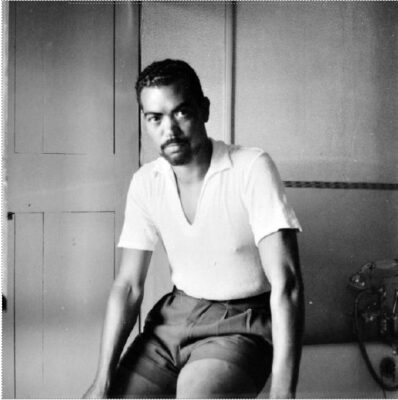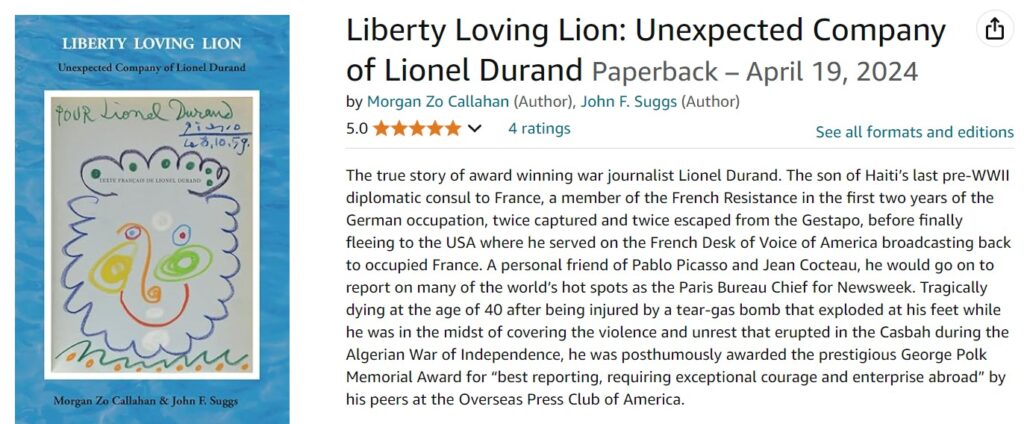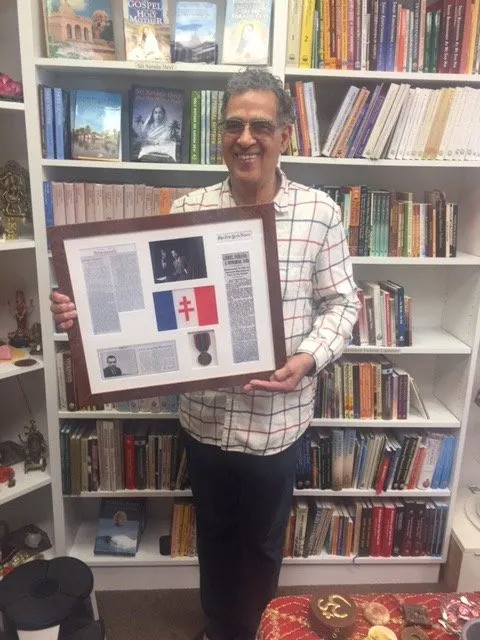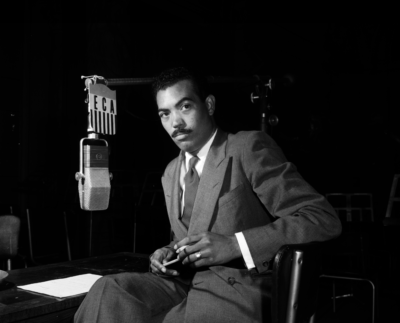Summer 2024
Dear Friends:
We are excited to announce the publication of our new book, Liberty Loving Lion:

Unexpected Company of Lionel Durand, now available on Amazon. Our book is an opportunity to better understand Haiti’s history while encouraging solidarity with our esteemed Haitian brothers and sisters in their present time of crisis.

Our book tells the true story of Morgan Zo Callahan’s father, Lionel Durand (1920, Port-au-Prince to 1961, Paris), a member of the French Resistance in the first two years of the German Occupation (1940-1942), twice captured and twice escaped from the Gestapo, finally fleeing to NYC where he served on the French Desk of Voice of America broadcasting back to occupied France.

As the Paris Bureau Chief for Newsweek, Lionel went on to report on stories such as the Algerian War of Independence (1952-1962). We contrast Picasso and Jean Cocteau— friends of Lionel Durand living in Paris during the German Occupation (1940-1944)—and extol Picasso’s anti-war art and his participation in the French Resistance. Tragically, Durand died at the age of forty, injured by a tear-gas bomb that exploded at his feet while covering the violence in the Casbah during the Algerian War.
We recount the trauma of living in a form of apartheid through the voices of Arab Muslims who suffered French colonialism and in victory, experienced some tangible healing; we witness French Army veterans coming to grips with their human rights violations against Arab Muslims. We conclude with a 2020 interview about Haiti with Dr. Francois Pierre-Louis Jr., member of former Haitian President Jean Bertrand Aristide’s private cabinet in 1991. Book royalties of Liberty Loving Lion donated to a Jesuit work, Faith in Action Haiti, directed by Dr. Francois Pierre-Louis Jr.
John F. Suggs and Morgan Zo Callahan
johnsuggs@gmail.com; morganzc@hotmail.com

By Morgan Zo Callahan
I had no idea who my father was for the first 74 years of my life. Given up for adoption, all I knew was what the adoption records stated: that my father had died before I was born.
I often wondered who he was? How did he die? Had he even known he was going to be a father? Since I was born in 1944, was he a soldier? Did he die in the war? Was his death the reason I was put up for adoption?
My adoption papers, offering no clues, merely stated about me:Morgan Zo Callahan as a child.
“The boy is a dark-complexioned child, thin and wiry with curly brown hair and large somewhat solemn eyes. On…the day before his third birthday, the child…was brought to the house of adoptive parents. Nothing is known of this child’s life up to this date.”
Seeking to find the answers that have eluded me all my life, I submitted my DNA to Ancestry.Com. When the results came back, I got my first clue: the DNA showed that my father was of African heritage and that my paternal DNA matches in the database were all Haitians. Unfortunately, because so few Haitians have submitted their DNA for testing, the matches I had were few and only distantly related.
So I hired a professional genetic genealogist, John F. Suggs, to help me in my search. It was from him that I finally learned who my father was: Lionel Durand, an eminent Haitian journalist. Sadly, I also learned that my father had been alive and well for the first 17 years of my life but had never known of my existence.
Lionel Durand had been denied his right to know me – and I him – and to be named as my father on my birth and adoption documents.
So who was my father?
I learned that Lionel studied at the Sorbonne, Heidelberg, and Oxford, and spoke French, English, German, Russian, Spanish, and Italian. Lionel’s father, Louis Durand (b.1863), was a prewar Haitian ambassador to France. The Durand family found themselves trapped in France when the Germans invaded in 1940.
The New York Times recounted that Lionel Durand was a former member of the French Resistance who was “twice arrested by the Gestapo and twice escaped.” Lionel faced the added difficulties for blacks fighting in the French Resistance. Former resistance fighter, Philippe de Vomecourt wrote in 1961: “For coloured men in France, a ‘safe house’ or false identity papers were an impossibility. To be a coloured man in a district occupied by the Germans was to know that death was near. The Germans had a pathological fear and hatred of coloured men.” Yet, in spite of this, Lionel nevertheless joined and fought in the Resistance.

As part of a wartime special investigation by the FBI, a report, filed under the signature of J. Edgar Hoover, noted that Louis Durand, the Haitian Consul in La Havre France, had returned to his home on July 16, 1941 and encountered four German soldiers who demanded his passports and those of his family. The soldiers confiscated the following: diplomatic passports and passports of Durand’s family; exequatur and act of nomination by Haitian Government; marriage certificate of Durand’s son, Lionel; official and private letters; all consular seals; blank passports; and notes belonging to Durand’s son and a photograph. They were now without any identification papers to protect them in occupied France.
In the Summer of 1942, the family finally successfully fled France for NYC where Lionel was appointed director of Voice of America’s French section regularly broadcasting to the people’s of occupied France.
********
He knew Paris as well as he knew the keyboard of his battered typewriter, and there was never an American visitor who wanted a glass of wine, or a wise briefing on French politics, or a gay laugh in a bistro, who did not get it freely from him. This was Lionel Durand. —Haiti Sun, January 29, 1961
Lionel returned to France in 1956 and eventually joined Newsweek. “As a former member of the Resistance he knew most of the major figures of that heroic era up to and including President de Gaulle.”
Lionel, a painter himself, must have been so energized being friends with Pablo Picasso. When Newsweek did a picture story on Picasso’s London exhibition, Pablo supplied his own captions for Lionel’s photographs. “I did this,” explained Picasso, “out of friendship for Lionel.”
In 1957, Durand was among the first reporters from the West to talk to Nikita S. Khrushchev. Lionel was covering the four-day and four-night celebration of Bolshevism’s 40th anniversary. Long-winded NSK, got things rolling with a three-hour speech to 17,000 Communists from 61 nations. “His sputniks launched and his rule secure, Nikita S. Khrushchev was rattling rockets, and talking peace on Soviet terms.”
After a January 8, 1961 referendum on Algerian self-determination, Charles de Gaulle declared the results of 16.9 million votes “to be striking.” 72% of French citizens of France and Algeria approved De Gaulle’s plan to end the Algerian War of Independence (1954-1962). The settlers of Algiers went into the streets to protest while the Muslims cheered for independence. The police fired on both contingents. 1.5 million died in the war say Algerian historians while their French counterparts say 400,000 from both sides died, horrific numbers.
Covering Algiers cost Lionel his life. Lionel died from a heart attack on January 14, 1961, a result of being tear-gassed in Algeria.
Lionel Durand was survived by his Jewish-German wife, Irene Lipszyc, born in Leipzig,1924. Escaping from the horror of the Nazis, Irene arrived in Baltimore, July 1942; she married Lionel in 1948. Their daughter, Barbara, was born July 16, 1952, in Neuilly, France. In 2010, sadly Barbara died in Hôpital de la Salpêtrière, Paris. Lionel, his wife and daughter all died without ever knowing about me – his son.
********
My new found father, Lionel Durand, has been an enrichment of my life, already happy with cherished family and friends. Discovering Lionel is being reborn in my father’s DNA, connecting to Haiti and Africa. I have been blessed to meet Haitian born cousins; feelings of pride in my Haitian blood and in the life of a remarkable Haitian reporter: war hero, Lionel Durand.